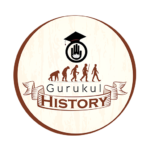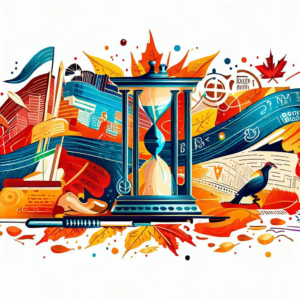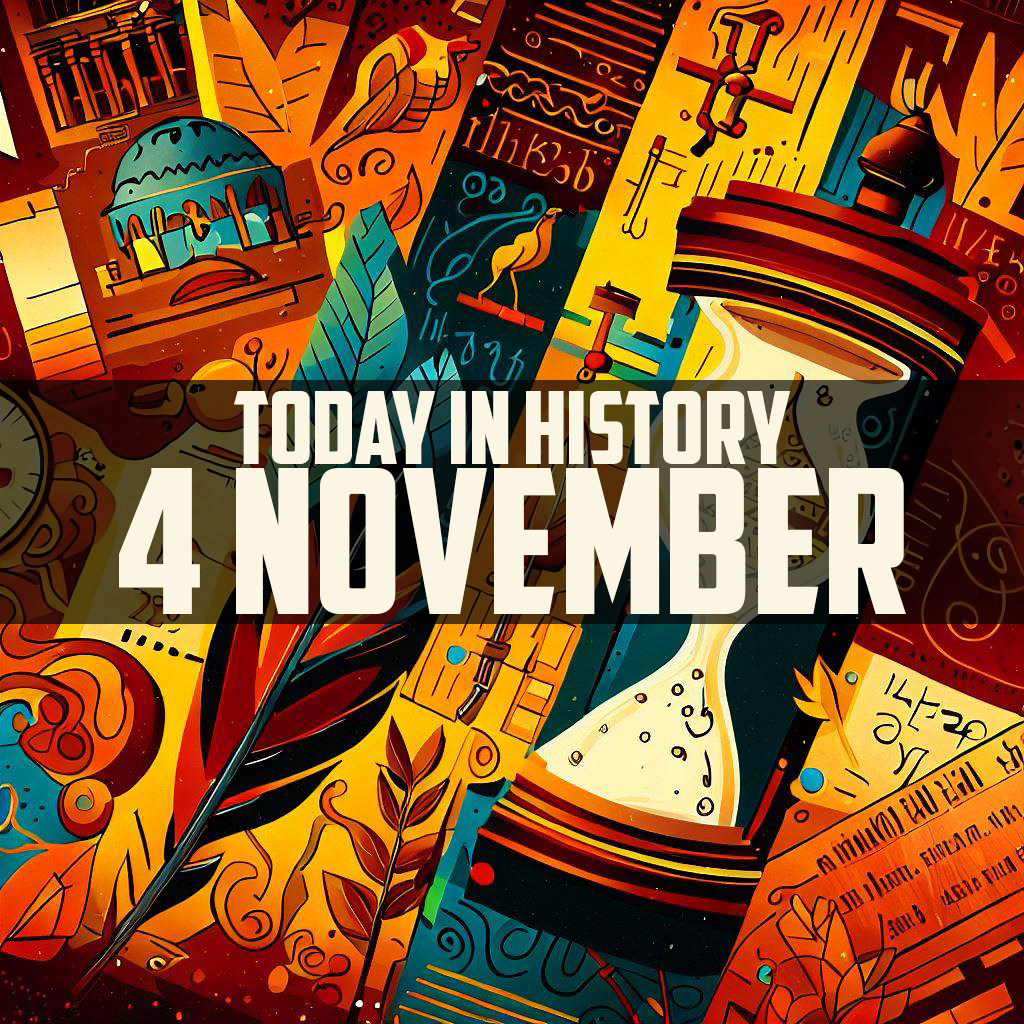As each day passes, it becomes a part of history, a mosaic of events that collectively shape the narrative of humankind. The 4th of November is no exception, bearing witness to a plethora of seminal occurrences spanning various domains – from politics and war to culture and space exploration. Let’s embark on a journey through time to understand the historical significance of this day.
Today in History: 4 November

1. Political Moments and Movements:
- 1922: Howard Carter, a British archaeologist, and Lord Carnarvon became the first people in over 3,000 years to enter the tomb of the Egyptian Pharaoh Tutankhamun. The discovery of King Tut’s virtually intact tomb garnered worldwide press coverage and ignited renewed public interest in ancient Egypt.
- 1979: The Iran Hostage Crisis began when 66 Americans were taken hostage after supporters of Iran’s Islamic Revolution took over the U.S. Embassy in Tehran. The hostages were held for 444 days, and the crisis is often considered a pivotal episode in the history of Iran-U.S. relations.
2. Scientific Breakthroughs and Discoveries:
- 1952: The U.S. detonated the first hydrogen bomb, codenamed “Mike”, at Enewetak Atoll in the Marshall Islands. It was a pivotal event in the Cold War and showcased the devastating power of thermonuclear weapons.
- 1960: Discoveries aren’t always about creation. On this day, the renowned scientist and novelist C.P. Snow delivered his “Two Cultures” lecture, highlighting the gulf between the sciences and humanities. His insights spurred global debates on education and interdisciplinary collaboration.
3. Cultural Landmarks:
- 1956: The Soviet Union’s invasion of Hungary was openly condemned by Jean-Paul Sartre, the famed existentialist philosopher. His stance marked a significant ideological rift between Sartre and the Communist Party.
- 2008: Barack Obama made history by being elected the first African-American President of the United States. His victory speech in Chicago’s Grant Park became an iconic moment, symbolizing progress in the fight against racial discrimination.
4. Tragic Moments that Shook the World:
- 1948: T. S. Eliot, the eminent poet, won the Nobel Prize in Literature, solidifying his position as one of the 20th century’s literary giants. His works, like “The Waste Land,” continue to be lauded for their depth and innovation.
5. Technological Advances:
- 1952: The IBM 701 was announced. As IBM’s first commercial scientific computer, this machine laid the groundwork for the company’s dominance in the computer industry throughout the latter half of the 20th century.
6. Sporting Triumphs and Tumults:
- 2001: The Arizona Diamondbacks clinched their first World Series championship in a thrilling game against the New York Yankees. Their win was emblematic of the unpredictable nature of sports, where underdogs can defy odds.
7. Pioneering Steps in Space:
- 1963: The launch of the Soviet satellite, Polyot 1, marked a significant advancement. It was the first satellite to have an innovative self-guided system, revolutionizing the scope and potential of space exploration.
8. Social Movements and Rights:
- 1956: The Israel Defense Forces began their withdrawal from the Sinai Peninsula, following international pressure and the 1956 Suez Crisis. This marked a significant chapter in the complex geopolitical landscape of the Middle East.
- 1995: Israeli Prime Minister Yitzhak Rabin was tragically assassinated at a peace rally in Tel Aviv. His death was a stark reminder of the deep-seated divisions and challenges facing the peace process in the Middle East.
9. Economic Paradigms:
- 2007: The Shanghai Stock Exchange fell 5%, its steepest drop in a decade. This foreshadowed the looming global economic recession that would ensue in 2008, emphasizing the interconnectedness of modern economies.
10. Moments of Human Endeavor:
- 1970: Resilience and perseverance were on full display when the North Tower of the World Trade Center in New York City reached its full height. The construction process, fraught with challenges, culminated in the tower becoming the tallest building globally.
- 1991: Ronald Reagan opened his Presidential Library in California. The library offers insights into Reagan’s tenure as President and his influence on American politics.

The 4th of November, like any day in the annals of history, provides a snapshot of human civilization’s ever-evolving journey. It underscores the myriad ways in which individual actions, monumental decisions, and serendipitous events converge to define our collective story. Every year as we mark this day, it’s an invitation to both reflect on the past and envisage a future that learns from history’s lessons.
